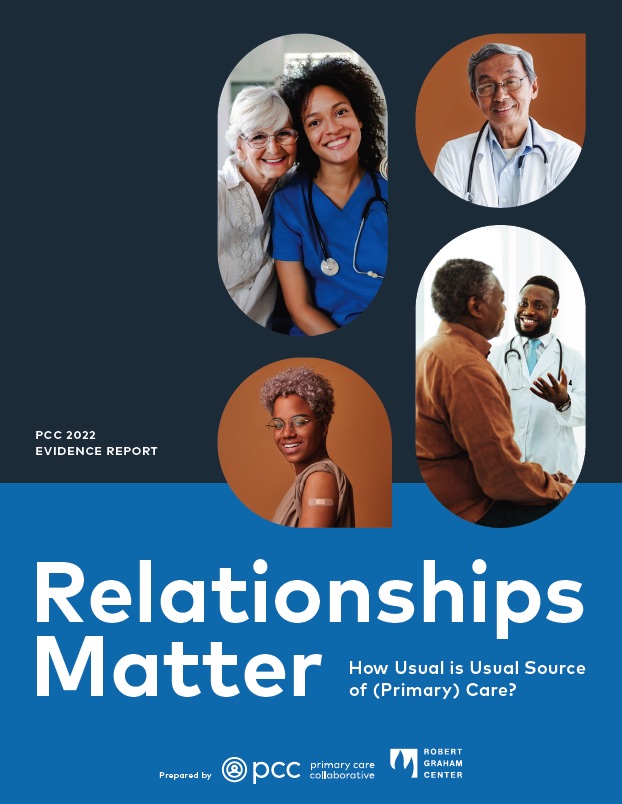You are looking at an archived version of our site. Please visit thepcc.org for a fresh, new experience!
July 2022 Lunch and Learn Discussion
During the meeting, Dr. Clarissa Hsu, Associate Investigator, with the Kaiser Permanente Washington Health Research Institute, and Janice Tufte, Patient Co-Investigator, presented their article entitled, "Evaluation of the Learning to Integrate Neighborhoods and Clinical Care Project: Findings from Implementing a New Lay Role into Primary Care Teams to Address Social Determinants of Health." In addition, Dr. Scott Strayer, Chair of the Department of Family Medicine at Virginia Commonwealth University, presented the article, "Preventing colorectal cancer or early diagnosis: Which is best? A re-analysis of the U.S. Preventive Services Task Force Evidence Report."
Summary of Discussion:
Evaluation of the Learning to Integrate Neighborhoods and Clinical Care Project: Findings from Implementing a New Lay Role into Primary Care Teams to Address Social Determinants of Health
The objective of the study was to assess the implementation and impact of the Community Resource Specialist (CRS) role in Kaiser Permanente Washington.
The Community Resource Specialist Role from KP Washington Research on Vimeo.
CRS Qualifications:
- Do not need prior healthcare experience
- Need to have experience, understanding and sensitivity to how socioeconomic, environmental, cultural, and other factors influence health
- 60% of time spent coaching patients and referring them to resources
- 30% of time in the community, developing relationships and getting out information
- 10% of time working directly with care team to teach them about community resources
- Training includes the State Community Health Worker certification program, and training in motivational interviewing and trauma informed care.
Role Implementation
- It is important to be very clear about the role and what is expected.
- There needs to be whole system changes to accommodate both the referrals to community resources and thinking about how the the information gathered by these new types of roles is used and what kind of kind of advocacy is done on the part of the system to address social needs.
Practice/Policy Implications:
- Importance of the patient voice, having patients in the room changed what we did, how the researchers decided to implement the role and what the role looked like in practice.
- You need a team-based care model to use this kind of role effectively (e.g., capitated systems, Value-Based Payment systems).
Janice Tufte (Patient-Co-Investigator) Reaction:
- Patients contributed to the project design and helped determine what the role would be and where the community resource specialists would be placed…etc.
Preventing colorectal cancer or early diagnosis: Which is best? A re-analysis of the U.S. Preventive Services Task Force Evidence Report
Colon cancer is still one of the leading causes of death in the United States, yet it is very preventable if people get screened. Flexible sigmoidoscopy (FS) is the only cancer screening test to lower the risk of death compared to usual care in randomized controlled trials (RCTs).
The study suggests prevention of CRC appears to be the major (or sole) mechanism of action for death reduction by FS in clinical trials. Conversely, early diagnosis of CRC does not appear to reduce death. In other words, if you reduce the incidence of colon cancer by one case, you're going to reduce death by one case.
- The American Cancer Society has guidelines for colorectal cancer screening and recommends people at average risk for colorectal cancer begin screening at age 45.
- Right now, flexible sigmoidoscopy is such a small percentage of screens, around 1% - 2%. It used to be a much higher percentage. Family medicine and primary care was where most flex sigs were happening. We should look at reintroducing flexible sigmoidoscopy into those practices and into providers’ training toolboxes.
- We need to continue to pursue confirmation that the newer stool-based tests do reduce mortality, especially all-cause mortality.
- There is an opportunity to reinvigorate the use of flex sig where there isn't availability of colonoscopy, and where someone may prefer direct visualization rather than the stool-based test. Primary care could be an advocate for flex sig, particularly in in underserved and rural areas where you may not have a GI specialist.
Overall, the best test is the one that people are going to get.
Associate Investigator, Kaiser Permanente Washington Health Research Institute
Medical anthropologist Clarissa Hsu, PhD, has been doing Kaiser Permanente research since 2001, and became an official member of the faculty in 2011. She conducts research using a holistic approach that unites the cultural, social, and political factors that shape health and health care. Dr. Hsu was one of the first researchers to receive funding from the national Patient-Centered Outcomes Research Institute (PCORI), which supports studies on issues that are a high priority for patients, caregivers, and clinicians. PCORI-funded research follows an innovative model, including patient input at all steps in the research process. Dr. read more
Chief Health Equity Officer/Deputy Chief Health Officer , Merative (formerly IBM Watson Health)
In her role at IBM Watson Health, Dr. Dankwa-Mullan is responsible for the global strategy for driving building clinical evidence for Watson Health solutions. This is accomplished through evaluation research, real-world evidence studies and implementation studies to support evidence-based practices to transform health care. She works with multidisciplinary teams at the interface of big data, cognitive computing and machine learning technology to inform healthcare delivery and clinical decision-making.
read more
Jack Westfall is a family doctor in Washington, D.C. He completed his MD and MPH at the University of Kansas School of Medicine, an internship in hospital medicine in Wichita, Kansas, and his Family Medicine Residency at the University of Colorado Rose Family Medicine Program.
After joining the faculty at the University of Colorado Department of Family Medicine, Dr. Westfall started the High Plains Research Network, a geographic community and practice-based research network in rural and frontier Colorado. He practiced family medicine in several rural communities including Limon, Ft. Morgan, and his hometown of Yuma, Colorado. read more
Janice Tufte was born and raised in Seattle, Washington. She has also resided in Wisconsin, Minnesota, California, Vermont, and New Mexico. She attended college in Washington, Minnesota, and California with a focus on sociology and special education. Tufte has a passion for connecting communities, organizations and or individuals to one other. She is an expert at taking learned best practices and information gained from one organization or institution and sharing that important knowledge with others at diverse levels: Patient to C Suite. She calls this practice of connecting the dots “pollination.” She currently presents as an individual to college classes, on panels and at medical conferences. read more
Chair, Department of Family Medicine & Population Health, Virginia Commonwealth University
Dr. Strayer received his medical degree and completed residency (VCU Hanover Family Medicine Residency program) at Virginia Commonwealth University (VCU) and subsequently was a founding faculty member for a military-civilian residency at Scott Air Force Base in St. Clair County, Illinois. He completed his Masters of Public Health at St. Louis University and began conducting research on smoking cessation and health behavior change in primary care settings. In 2005, he was a recipient of an American Cancer Society Cancer Control Career Development Award. read more
What's New
Agosto 16, 2024
- Page 1
- ››









